Dear readers:
Hopefully you still exist. If not, I totally understand– the blog has been essentially dead for the last month😅 I’ve been extremely busy with my studies on top of all my college applications, so I haven’t made the time to post.
I’ll give a quick update of a few things I’ve been up to, however, the main purpose of this post is to tell a bit about my trip to Seodaemun Prison as part of a cultural excursion (don’t worry, I have yet to be incarcerated):
- I’m getting closer and closer to finishing all my applications! After completing 15 writing prompts, a DODMERB medical exam, a 2-hour interview, and 5 nomination applications to Senators/Congressmen/VP/President Obama… I only have 3 essays and one interview left 🙂 I still have plenty of work cut out for me these next few weeks but thankfully I’m getting closer each day.
- I have become a regular member at New Philadelphia church in Hongdae and have been SO blessed by them. Much of the congregation is composed of college students, many of which have really reached out to me and included me in their circles of friends. I’m part of a small group Bible study called a “Familia” with 8 other college-age girls and they are such a blessing to me. We have so much fun together and they’ve really made me feel at home here.

A few of the lovely girls from my Familia❤️ - With the college ministry at New Philly (called “Emmaus”) I was able to attend a weekend retreat called “Freedom to Be.” It was an incredibly impacting weekend and really brought me deeper in my relationships with both fellow Emmaus students and with the Holy Spirit. Very blessed.
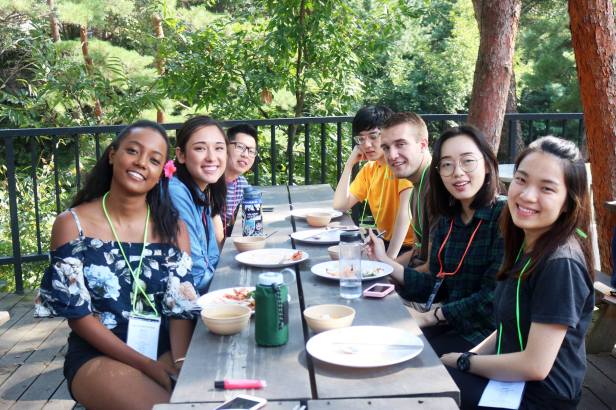
- Korean studies are continuing to go well despite my busy schedule. I average somewhere between 4-5 hours of sleep on weekday nights and I’m usually a walking zombie by the weekend, but I’m continuing to learn a lot and I’m thankful to be here. Despite this, studying a language can be extremely difficult at times and I honestly believe it’s one of the hardest things I’ve ever done. Being completely immersed in Korean and studying it so intensely without anything else to break up your academic workload, my brain can shut down sometimes. I’ve found that my Korean goes up or down on a daily basis and sometimes I feel practically fluent while other days I sit mostly in silence throughout the day because I have no idea what’s going on. The constant ups and downs can be difficult… but I’m working on using the up days as encouragement and the down days as motivation to continue improving.

With my classmate 연주 on our school’s “sports day” 
My friend 김태환 aka “The Kimchi Boss” (he’s an aspiring rapper but he’s keeping it on the DL for now) 
My favorite street food, 떡볶이 (ttukbokki) — keeps me going on those long nights of studying
So, now onto the main purpose of this post.
This weekend our monthly cultural excursion brought us to Seodaemun Prison, an internment camp used primarily by the Japanese during their colonial rule of Korea from 1910-1945. While the prison itself was intriguing, what left a greater impression on me was the importance of history and understanding.
On a national level, Korea and Japan have much animosity toward one another. Although I was aware of the brutality of Japan’s annexation of Korea, I struggled to fully understand the lasting hostility between the two nations. Before the day of our tour, I spent some time discussing Japanese rule with my host mom, Korean teacher, and classmates. From their accounts, they remember the harshness of Japan’s colonization as a very sore part of their history, something which still stings fresh in the hearts of many Koreans.
However, they also believe that much of the young generation, particularly children, are inappropriately taught to dislike Japan without explanation of why their hostility exists. On the other hand, many of the older generation can clearly remember the days of Japanese rule: their country being turned into a colonial prison, their women taken advantage of, their culture stripped from them. The Japanese, failing to understand Korean language or culture and viewing their own as more legitimate, nearly decimated an entire system of speaking, reading, and writing. Only through the sacrifice of thousands of independence fighters was Korea finally recognized as liberated from Japanese colonial rule on August 15, 1945.
My fellow NSLI students and I discussed the importance of history, from what perspective history should be taught, and the root of contempt between Japan and Korea. Our discussions turned my thoughts toward two particular things: perspective and understanding. Many Japanese people today do not feel responsible for what happened to Korea because they are taught in school that what they did was not wrong. Much of Japan’s history including torture and killing has been buried as their government refuses to apologize to Korea. This failure to accurately understand their past causes deeper lines of divide and only creates the possibility for more conflict in the future.
Likewise, the younger generation of Koreans today have a hard time connecting with the despair and hardship endured by their ancestors in order to create the prosperous nation existent today. Hostility toward Japan has become more cultural than justified as even children can be seen wearing t-shirts proudly stating, “Our Dokdo” in reference to the modern day passive-aggressive conflict over the island of Dokdo between Korea and Japan. Hurt people turn around and hurt people; prolonged hatred only breeds deeper enmity. Although Korea is justified in their hurt, both Korea and Japan have yet to take steps toward true forgiveness. Failing to understand history properly on both sides only causes hostility to deepen and prolongs the prosperity the two nations could share.
As I look around the world today, much of what happened in the mid-20th century East Asia is not unlike much of the conflict happening today in Eastern Europe and the Middle East. Visiting Seodaemun prison made me realize how incredibly blessed I am to live in freedom and also invigorated me to someday use my experiences and resources to increase understanding between nations around the world. Realization that your perspective may not be the best and respecting others for their differences is the first step in creating peace– individually and nationally.
For as history has proven, freedom truly is not free.
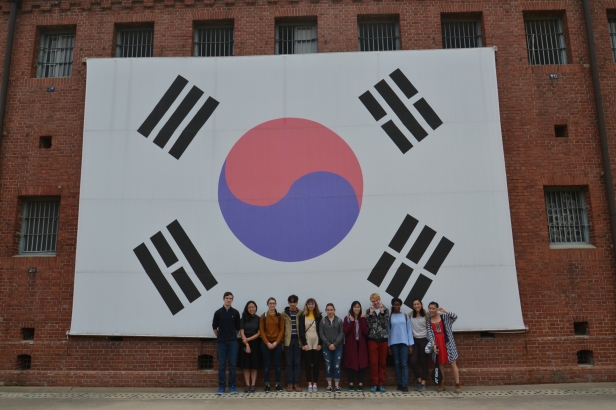
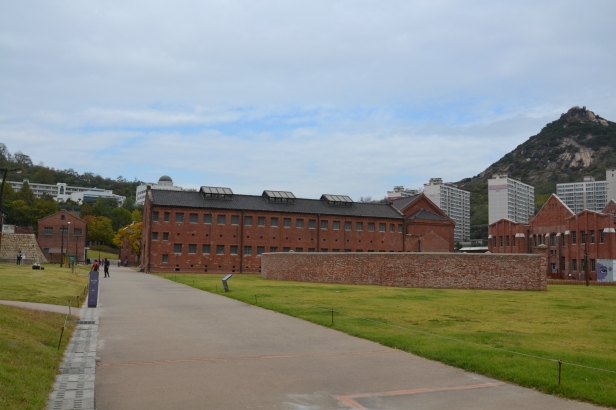
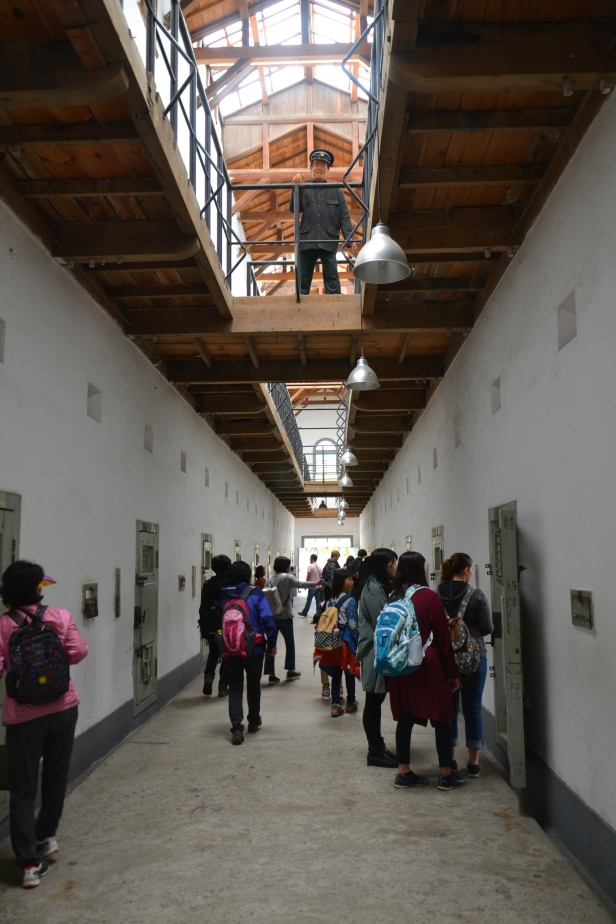
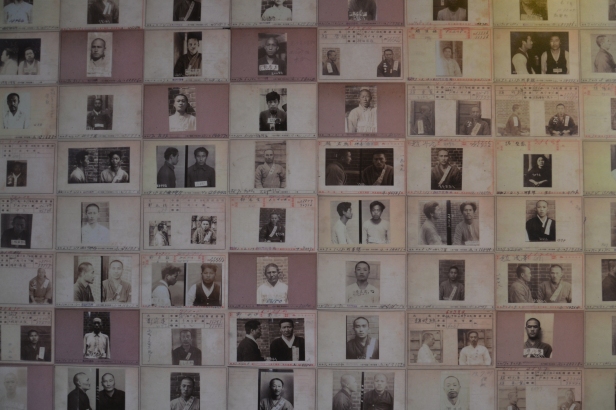

Beautiful reflection, Libby. You make a difference in our world!
LikeLiked by 1 person
Just wanted to let you know that I read each and every one of your posts! Keep up the good work in your college applications and Korean studies! Get some sleep while you’re at it too 🙂
LikeLike
We appreciate all you are doing to ‘dance with life’. Each day is truly a gift. We are visiting your family a few days before we head to Fl. Blessings to you and all you encounters! Gr- Gm- B
LikeLike
Just wanted to let you know that I read every single one of your blogs! You have an amazing outlook on life that’s extremely unique due to your incredible experiences. Good luck on your college applications and Korean studies! Remember to get some sleep 🙂
LikeLike
Nicely written! Great grandma Kim was fluent in Japanese because of the occupation. Speaking Korean or celebrating Korean traditions was illegal in her time and enforced brutally.
LikeLike
i am glad that you learn and understand more about history of Korea. I understand you are very busy but you must get sleep enough for your health. Health is priority of your life.
LikeLike